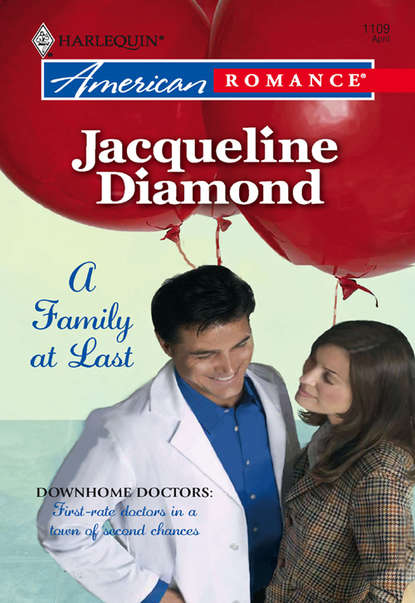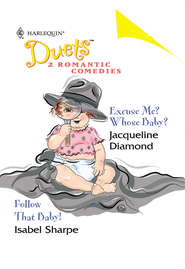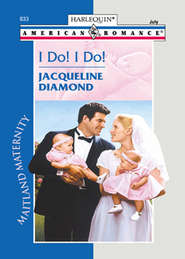По всем вопросам обращайтесь на: info@litportal.ru
(©) 2003-2025.
✖
A Family at Last
Автор
Год написания книги
2018
Настройки чтения
Размер шрифта
Высота строк
Поля
“I’ve got to deliver these flyers to Archie Rockwell.” He picked up the box. “How much more typing do you have?”
“I’m done.” Karen knew he wanted to lock up, and besides, she had finished. “I’ll go with you.”
“Great. Thanks for the help, by the way.” Barry cast her one of his rare smiles. Noting how it transformed him, she wished other people could see how handsome he looked. It was too bad that her brother’s brooding temperament and the prison-inflicted scar on his forehead frightened off the eligible women in town. Falling in love might be exactly what he needed.
On the other hand, love didn’t always work out, she reflected, and logged off the system.
They set out into the crisp March sunshine. The Gazette’s wood-sided office lay adjacent to the Green and across a cul-de-sac from the Café Montreal. Beneath a striped awning, customers enjoyed the outdoor eating, their voices creating a convivial hum.
“Maybe I’ll grab a bite on the way home,” Barry was saying, when he stopped cold.
With a sinking sensation, Karen saw why. In the playground ahead, Chris McRay whizzed down a slide with a gleeful toddler on his lap.
Hitting the bottom, he scooped up the child. “What a brave boy!”
“Again!” the tot demanded.
“No, me!” interjected another youngster.
“So much for the old saying about kids and dogs being good judges of character,” Barry muttered.
Apparently catching sight of them, Chris set down the little boy and brushed off his slacks, then assumed a watchful air.
Karen could feel her brother trying to decide between ignoring the interloper and confronting him. “Better to shake hands and get it over with,” she advised. “You two are bound to meet sooner or later.”
“That doesn’t mean I have to acknowledge him,” Barry retorted.
For his own sake, Karen thought, he had to stop making a show of his resentment. “What are you going to do if you have to write a story that involves him?”
“That’s different. I always behave like a professional on the job.” He shifted the box. “You’re right, though. There’s no point in ducking him.”
“Good.” And just in time, for Chris was moving toward them.
“I don’t intend to leave him in any doubt about where we stand.”
“That isn’t what I meant!” Karen hoped they weren’t going to quarrel in public. Still, better here than at the nursing home. She’d hate for Renée and Mae Anne to witness an argument.
Nearing them, Chris opened his mouth to speak. Barry raised a hand to stop him. “Don’t bother.”
“Don’t bother to say hello?” Chris halted, apparently unaware that he had a twig stuck in his hair from playing with the children. Karen felt an irrational urge to pluck it out.
“If you think we can be friends, you’re wasting your time.” Bitterness coarsened Barry’s voice. “We’re not even acquaintances. Or anything.”
Chris regarded him steadily. “How can we not be anything? Strangers, enemies—we have to be something.”
“Why’d you decide to grace Downhome with your presence—so you could gloat?” Barry’s rage crackled across the intervening half-dozen feet. “You covered your crime pretty well, but you weren’t satisfied to get away with it, were you? No, you had to come rub my face in it.”
“What the hell are you talking about? I didn’t commit a crime and you know it, or you ought to.”
Fists tightened at Barry’s side. “I’m going to nail you if it’s the last thing I do.”
Chris’s eyes narrowed at the ferocity of the response. “This idea about my killing Mr. Anglin is crazy.”
He probably didn’t realize that the implication of mental illness was a sore point with Barry because of his depression. For a moment, Karen feared her brother would lose what remained of his self-restraint. Suppose he physically attacked Chris and got arrested? With his felony record, he’d probably be sent back to prison.
Fortunately, Barry hadn’t entirely lost his judgment. “You always were good at playing to the crowd,” he retorted coldly. “Anybody’d think I’m the one who wronged you. Look at him, Karen. There’s a man who can deceive you so smoothly you won’t know you’ve been taken in until it’s too late.”
Yes, she’d seen that side of Chris. Yet there was nothing cold or calculating about the dismay on his face.
“You think you can prove I killed Norbert Anglin?” the young doctor asked skeptically.
“If I have to do it with my dying breath,” Barry answered, “yes.”
“For Karen’s sake, I hope that won’t be soon.” Chris shook his head. “My family left Downhome out of consideration for your folks, and I’ve stayed away for the same reason. I’m sorry for what you’ve been through, because I know you didn’t mean to lash out as hard as you did. But as for the rest, you’re in denial and it’s time you got over it.”
“I’m glad we’ve got this out in the open,” Barry growled. “So we don’t have to pretend to get along. There’s nothing I hate worse than hypocrisy.”
With that, he renewed his grip on the flyers and departed so rapidly he left Karen behind. She stole a glance at Chris’s face.
Among the warring emotions, she saw sadness. If only she could offer some reassurance, but what was there to say?
Aware of the watchers at the café, she hurried after her brother. Everyone had better understand that Barry could count on his sister’s loyalty, one hundred percent.
“THESE DATE BACK TO before we computerized our records.” Lieutenant Mark O’Bannon dropped a stack of dog-eared reports on the interrogation-room table. “Good luck finding what you want.”
“I appreciate your letting me look through these.” With Ethan on his honeymoon, Chris hadn’t been certain what sort of response he might receive when he’d walked into the police station a few minutes ago.
Barry’s declaration of war had completely changed his mind about reviewing the facts of the case. He most definitely would; he needed all the ammunition he could get.
“Amy was happy to pull them.” Mark, a straightforward young man in his late twenties whom Chris remembered vaguely from their younger years, was engaged to Amy Arroyo, who doubled as both the chief’s secretary and as records clerk. He was also Rosie Otero’s son. “We’re glad to help Maria Wilhelmina’s doctor.”
Being the town’s pediatrician brought unexpected perks, Chris reflected. “I don’t mean to take advantage. But as I mentioned, Barry seems determined to smear my name. Frankly, I’ve forgotten most of the details of what happened, if I ever knew them.”
As a key witness, he’d been barred from the courtroom during much of the proceedings. The newspaper, at that time edited by Barry’s parents, had printed only the most basic information, and afterward, Chris had wanted to put the whole matter behind him, not to dwell on it.
“Knock yourself out,” Mark rejoined cheerfully and went about his duties.
Chris began plowing through the stack of paper. Face sheets, diagrams, the coroner’s report—most of it was new to him.
As he studied the pages, memories intervened. That summer before college, Chris had been working at the grocery store when one day, to his astonishment, farmer Norbert Anglin stalked in and accused him of flirting with his wife.
Although he’d exchanged a few pleasantries with Amelia as he’d bagged her groceries, that was the extent of their acquaintance. When Chris protested, Norbert called him a liar. Furious, Chris tried to defend himself, only to be shouted down.
The curmudgeonly storeowner, Beau Johnson, threatened to fire Chris for arguing with a customer. At Norbert’s insistence, the young man was forced to apologize in front of a store full of customers.
The injustice stung. Chris might have left it at that, but when Barry heard about it, he urged that they play a revenge prank on the farmer.
The boys sneaked onto the farm one night a week later to let chickens out of the coop. Suddenly, floodlights activated. As they scrambled to flee the barnyard, Anglin had born down on them with a pitchfork.











